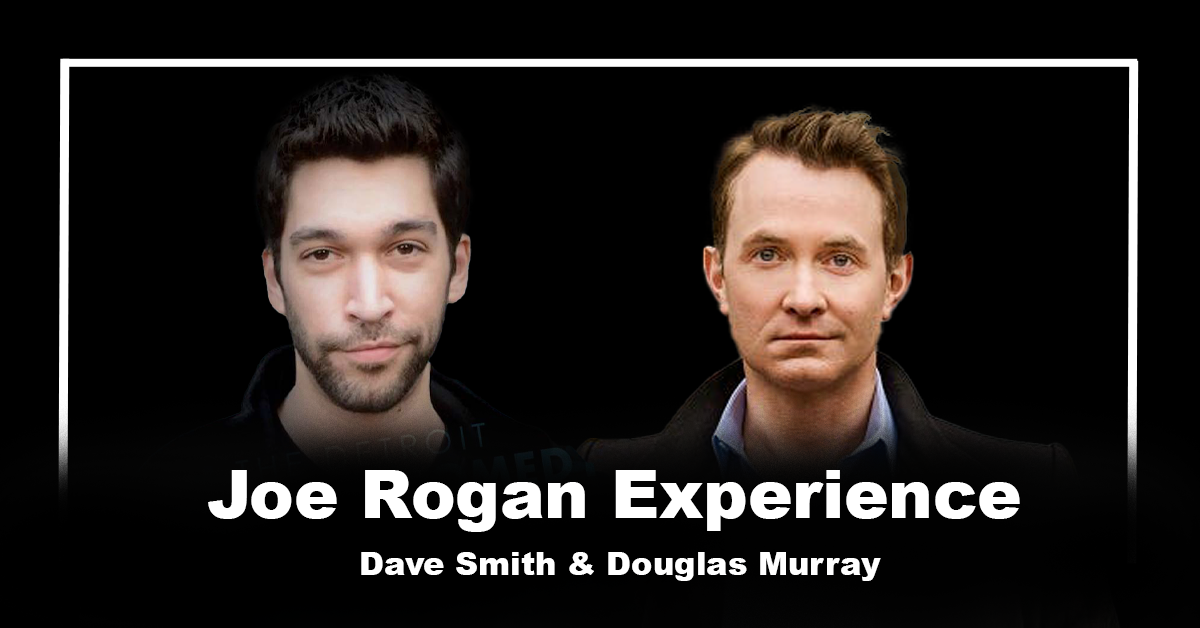Hey everyone,
This episode of the Joe Rogan Experience brings together two commentators with often sharply differing views on major geopolitical events: comedian and libertarian commentator Dave Smith, and conservative author and cultural critic Douglas Murray. Joe aims for a rational conversation, pushing back against the screaming matches often seen elsewhere, to explore their perspectives on the ongoing wars in Ukraine and Israel/Gaza.
The conversation quickly dives into contentious territory, examining historical narratives, the role of US foreign policy, accusations of bias, the nature of propaganda, and the challenges of finding objective truth amidst the “fog of war” and competing ideologies. They debate everything from Churchill and Hitler’s legacies to the definition of genocide, the expansion of NATO, the influence of foreign money in US politics, and the very motivations behind the current conflicts.
While agreement is scarce, the discussion highlights the complexities, historical baggage, and deeply held (and often conflicting) beliefs shaping commentary on these critical global issues.
Here are the detailed key insights and takeaways:
On Guest Selection & Media Bias:
- The Premise: Joe initiated the conversation hoping to foster rational discourse between people who disagree, contrasting it with polarized cable news formats.
- Accusation of Tilt: Douglas Murray questions if Joe’s guest selection has tilted towards critics of Israel, prompting a discussion about seeking diverse perspectives versus platforming potentially harmful or fringe views.
Debating Historical Narratives (Churchill, Hitler, WWII):
- “Revisionism”: Murray pushes back against what he sees as attempts to downplay Hitler’s evil or portray Churchill negatively, arguing it’s a dangerous trend, sometimes fueled by fringe figures. Smith argues for examining historical figures critically, acknowledging mistakes without excusing atrocities.
- Holocaust Nuance: Murray takes issue with any framing that could be perceived as minimizing Nazi atrocities or providing fodder for Holocaust deniers, emphasizing the unique evil of Hitler’s regime. Smith argues for understanding historical context and motivations, even of bad actors, without justifying their actions.
- The “Woke Left” Analogy: Smith suggests the tendency to find fault with historical Western figures mirrors tactics used by the “woke left,” while Murray distinguishes between legitimate criticism and dangerous revisionism.
The Israeli-Palestinian Conflict & Gaza War:
- Origins & Agency: Intense debate ensues about the root causes, the 2005 Gaza disengagement, the rise of Hamas, the legitimacy of blockades, and the allocation of blame. Murray emphasizes Hamas’s stated goal of annihilation and their use of civilian infrastructure. Smith highlights the impact of the ongoing occupation/blockade and questions the proportionality of Israel’s response, pointing to the high civilian death toll, especially among children.
- “Concentration Camp” Analogy: Smith references the controversial comparison of Gaza to historical concentration camps (sharing characteristics but obviously not identical), while Murray vehemently rejects the term and its implications.
- Fog of War & Information: Both acknowledge the difficulty of getting accurate information. Murray criticizes reliance on Hamas-provided figures and what he sees as anti-Israel bias in international media. Smith criticizes what he perceives as a downplaying of Palestinian suffering and the automatic defense of Israeli actions.
- NATO Expansion & Provocation: The discussion touches on whether NATO expansion provoked Russia’s invasion of Ukraine, with Murray arguing countries chose to join NATO out of fear of Russian aggression, while Smith points to warnings from US officials (like the Biden CIA director’s 2008 memo) that flirting with Ukrainian membership was a red line for Russia.
US Foreign Policy & Intervention:
- Strategic Empathy: Smith argues for “strategic empathy,” trying to understand the perspective of adversaries (like Russia regarding NATO), while Murray cautions against excusing aggressive actions.
- “Who Benefits?”: Both touch on the idea that US foreign policy decisions (Iraq, Libya, Syria interventions) often have complex, sometimes counterproductive, outcomes, questioning the narratives used to justify them.
- “The Fog”: Murray references Milan Kundera’s concept of the “fog” of the present – how difficult it is to understand the true implications of events while they’re happening, compared to the clarity (or perceived clarity) of hindsight.
Cancel Culture & Free Speech:
- “Red Pilling”: Murray mentions Michael Malice’s concept – the danger of discovering one establishment lie and then assuming everything is a lie, leading down conspiracy rabbit holes (“swallowing the whole bottle”).
- Platforming Fringe Views: A recurring tension is whether platforming controversial figures (like those questioning historical events) grants them undue legitimacy, versus the principle of open debate.
Key Disagreements:
- The primary driver of the Gaza conflict (Hamas aggression vs. Israeli policy).
- The interpretation of historical events and figures (esp. Hitler, Churchill, WWII outcomes).
- The degree to which US/Western actions are responsible for global conflicts versus the agency of other actors.
- The appropriate level of skepticism towards official narratives versus fringe theories.
Final Thought:
This episode exemplifies the difficulty of navigating complex geopolitical issues in a polarized media landscape. While Dave Smith and Douglas Murray find little common ground, their intense exchange highlights the deep ideological divides, historical interpretations, and differing frameworks used to analyze current events. It underscores the challenge of seeking truth when narratives are weaponized and even basic facts are contested.
Find the Guests:
- Dave Smith: ComicDaveSmith.com, Host of “Part of the Problem”
- Douglas Murray: DouglasMurray.net, Author of “Democracies and Death Cults”
Until next time,
The Podcast Notes Team





